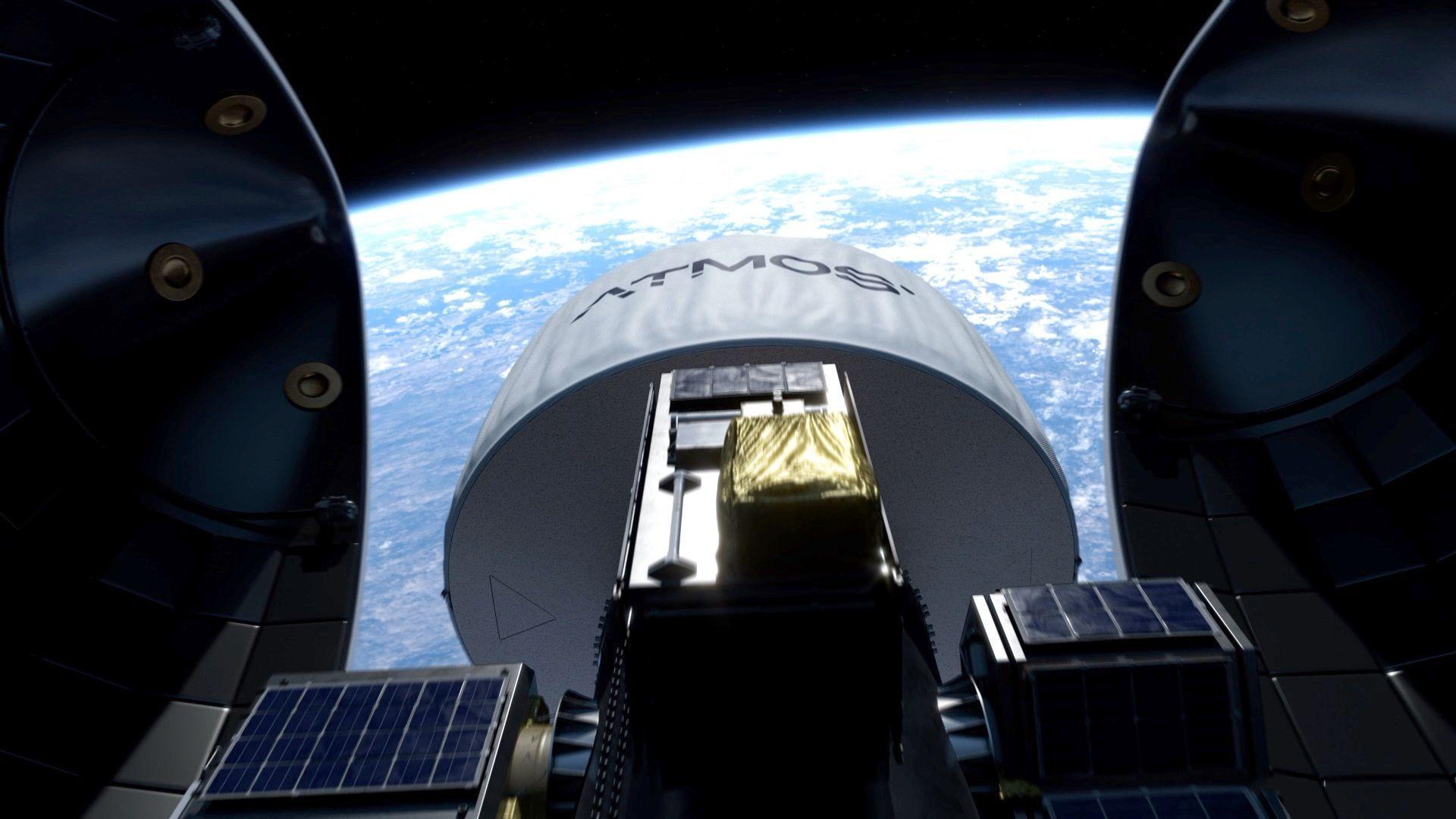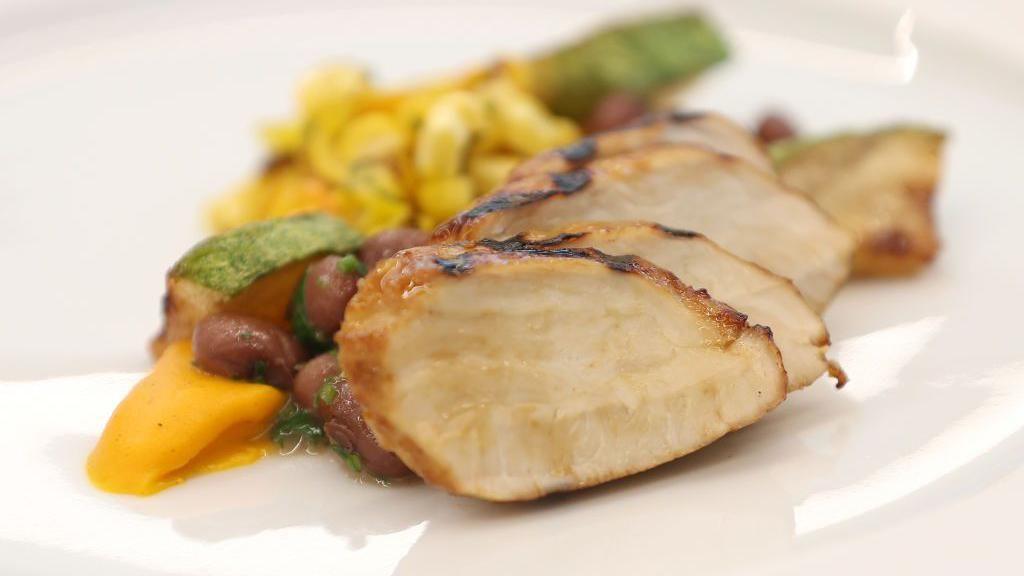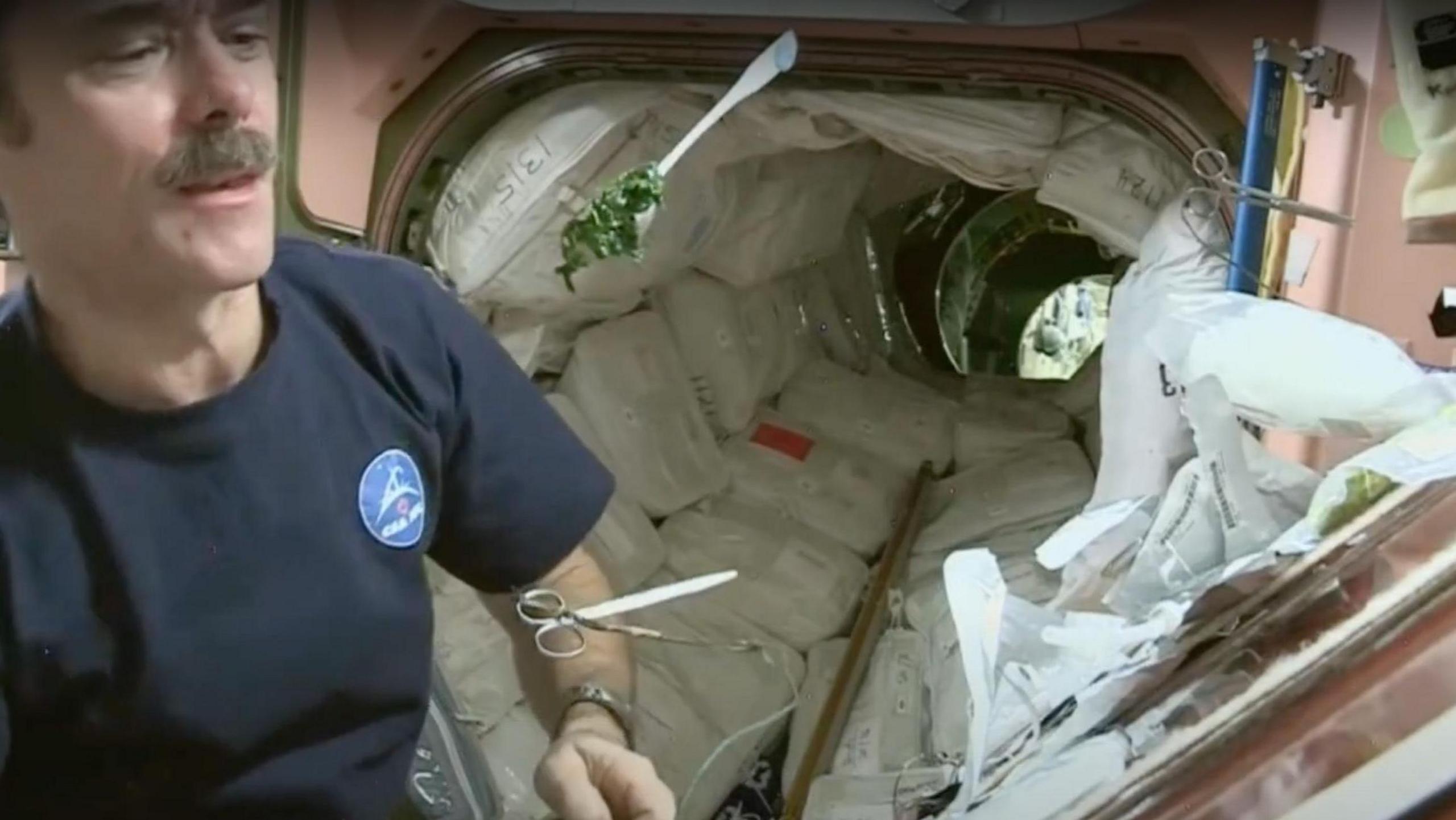Space food: Experts try to work out how to feed astronauts in space
How to feed people on long space journeys?
- Published
Astronauts could be enjoying things like steak and mashed potatoes grown in a space lab if a trial launched into orbit on Tuesday is a success.
Currently most food taken to space has to be freeze-dried to reduce its weight and to make sure it lasts longer.
But scientists are working on how to grow food from individual cells.
The European Space Agency (ESA) project is looking at whether so-called lab-grown food could work in orbit.
Are we getting closer to eating lab-grown meat?
- Published8 October 2024
Lab-grown meat made in space for first time
- Published8 October 2019
Lab-grown meat goes on sale in UK dog food
- Attribution
- Published9 February

Artwork: The experiment will orbit the Earth for three hours before returning and splashing down off the coast of Portugal
Dr Aqeel Shamsul is CEO and founder of Bedford-based Frontier Space, which is developing the project with researchers at Imperial College London. He told BBC science correspondent Pallab Ghosh the experiment is the first step to a much bigger plan.
"Our dream is to have factories in orbit and on the Moon," he told BBC News.
For now, a small version of the experiments they have been trying on Earth have been sent to orbit the Earth in a small cube satellite. This was on board Europe's returnable capsule Phoenix, which hitched a ride on the Falcon 9 rocket that launched on 21 April.
What is lab-grown food?

This lab-grown chicken was sold at a restaurant in California in the USA
Food made in a 'lab' or laboratory is any food which is made without using traditional farming or growing methods.
Cells of animals or plants can be grown and multiplied in a lab to create larger amounts of food.
In the US, lab-grown chicken is already available to buy, and in the UK, lab-grown meat is already used for pet food.
At Imperial College's Bezos Centre for Sustainable Proteins in London, they are looking at how food can be processed in test tubes to make it look and taste like normal food.
"We can make all the elements to make food," Dr Rodrigo Ledesma-Amaro, Director of the Bezos Centre, told Pallab.
"We can make proteins, fats, carbohydrates, fibres and they can be combined to make different dishes."
Why are they trialling lab-grown food?

Currently astronauts eat freeze-dried food
One of the reasons this is happening is because of the cost of sending astronauts food on the ISS.
It's estimated to cost up to £20,000 per astronaut per day.
Space agencies like Nasa and private sector firms plan to have a long-term presence in space in orbiting space stations and perhaps eventually on Mars.
But sending food up for potentially hundreds of astronauts would be far too expensive.
Dr Aqeel Shamsul said this could be an alternative: "We need to build manufacturing facilities off world if we are to provide the infrastructure to enable humans to live and work in space".
